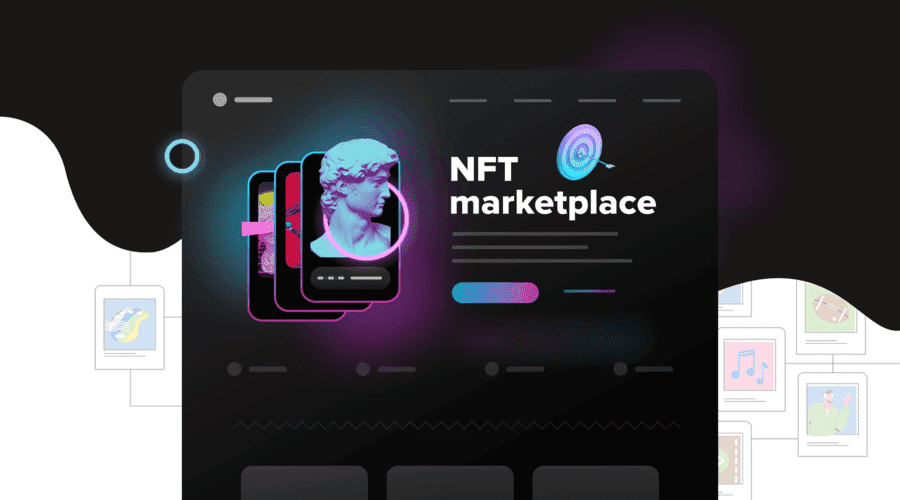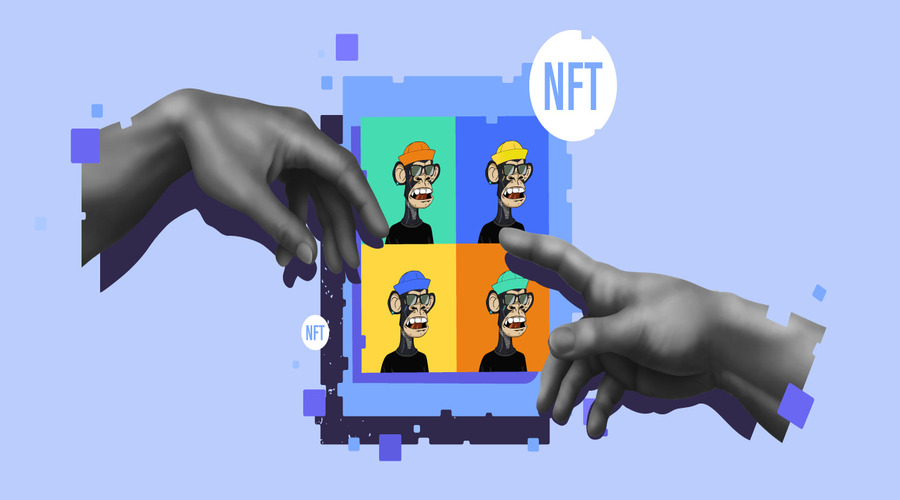Collusion and Cartels in NFT Markets: Examining the Impact of Coordinated Manipulation

Collusion and Cartels in NFT Markets
In recent years, Non-Fungible Tokens (NFTs) have emerged as a popular form of digital asset, revolutionizing the way we perceive and trade digital art, collectibles, and other unique virtual items. However, with the growing popularity of NFTs, concerns have arisen regarding potential collusion and cartels in NFT markets. This article delves into the impact of coordinated manipulation in NFT markets, exploring its implications for buyers, sellers, and the overall integrity of the NFT ecosystem.
Overview of NFT Markets
NFTs are unique digital assets that are stored on a blockchain, typically using the Ethereum network. They provide proof of ownership and authenticity for digital items, allowing for easy transfer and ownership verification. NFTs have gained significant attention and value due to their scarcity and ability to represent ownership of digital art, virtual real estate, in-game items, and more.
Understanding Collusion and Cartels
Collusion refers to a secret agreement between two or more parties to deceive or manipulate a market. In the context of NFTs, collusion can involve coordinated efforts to artificially inflate or suppress the prices of specific NFTs, mislead buyers about the value of certain assets, or monopolize the market to stifle competition. Cartels, on the other hand, are groups of market participants who collude to control prices, restrict supply, or engage in other anti-competitive practices.
Collusion and cartels are deceptive practices that can significantly impact markets. Collusion involves secret agreements between multiple parties to manipulate or deceive the market. In the context of NFTs, collusion can manifest as coordinated efforts to inflate or suppress prices, mislead buyers about asset values, or establish monopolies. Cartels are groups of market participants who collude to control prices, restrict supply, or engage in anti-competitive behaviors. These practices undermine market fairness, hinder competition, and can lead to financial losses for unsuspecting buyers. Understanding collusion and cartels is crucial for safeguarding the integrity and transparency of NFT markets, promoting fair trade, and protecting the interests of buyers and sellers.
Coordinated Manipulation Techniques
Collusion in NFT markets can take various forms. Some common techniques include:
- Price Manipulation: Colluding parties artificially inflate the price of NFTs engaging in a series of coordinated purchases, creating an illusion of high demand.
- Spoofing and Shilling: Colluders may create fake accounts or use bots to drive up bids, creating a false sense of competition and value.
- Wash Trading: Colluding parties repeatedly trade NFTs amongst themselves to create artificial transaction volumes, giving the impression of a thriving market.
- Insider Trading: Participants with access to non-public information may share it with others in the cartel, giving them an unfair advantage in trading decisions.

Impact on NFT Buyers
Collusion and cartels can have detrimental effects on NFT buyers. When prices are artificially inflated, unsuspecting buyers may overpay for an NFT, only to discover its true value later. This can lead to financial losses and a loss of trust in the NFT market. Additionally, collusion reduces market efficiency, making it harder for genuine buyers to acquire desirable NFTs at fair prices. Collusion and cartels in NFT markets have a significant impact on buyers. When collusion occurs, buyers may unknowingly overpay for NFTs due to artificially inflated prices. They might believe they are purchasing a valuable asset, only to discover its true worth later. This can result in financial losses and erode trust in the NFT market. Moreover, collusion reduces market efficiency and fairness, making it challenging for genuine buyers to acquire desired NFTs at reasonable prices. It creates artificial barriers and distorts the supply and demand dynamics, disadvantaging buyers who are seeking authentic transactions. Protecting buyers from the negative consequences of collusion is crucial for fostering a healthy and trustworthy NFT ecosystem.
Effects on NFT Sellers
While collusion may benefit a select group of sellers in the short term, it can have negative consequences for the broader NFT seller community. Collusion stifles competition, making it difficult for individual sellers to gain visibility and fair prices for their offerings. Genuine sellers may struggle to attract buyers when faced with artificially inflated prices set colluding parties.
Maintaining Integrity in NFT Markets
To combat collusion and cartels in NFT markets, various measures can be implemented:
- Market Surveillance: Continuous monitoring and analysis of transaction data can help identify suspicious trading patterns and irregularities.
- Transparency: NFT platforms should strive for transparency providing information about the identity and reputation of sellers, verifying the authenticity of listed items, and disclosing transaction histories.
- Whistleblower Programs: Encouraging users to report suspicious activities can help uncover instances of collusion and cartels.
- Regulatory Oversight: Governments and regulatory bodies can play a role in setting guidelines and enforcing fair practices in the NFT market.
Regulatory Challenges and Solutions
Regulating NFT markets presents unique challenges due to their decentralized nature and cross-border transactions. However, international cooperation among regulatory bodies, industry self-regulation, and the development of standardized practices can help address these challenges. Clear guidelines regarding market manipulation, disclosure requirements, and user protection can contribute to a fair and transparent NFT ecosystem.
Transparency and Market Surveillance
Ensuring transparency in NFT markets is crucial for maintaining trust. Platforms should implement robust market surveillance mechanisms to detect and prevent collusion. By leveraging advanced technologies like artificial intelligence and machine learning, suspicious activities can be identified, investigated, and appropriate actions can be taken to maintain the integrity of the market.
Building Trust in NFT Markets
Building trust is essential for the long-term success of NFT markets. Platforms can work towards building trust by:
- User Verification: Implementing thorough user verification processes can help ensure the legitimacy of buyers and sellers.
- User Ratings and Reviews: Allowing users to rate and review their experiences can facilitate transparency and hold sellers accountable for their actions.
- Educating Users: Providing educational resources and guidelines about market practices, risks, and potential signs of collusion can empower users to make informed decisions.
The Future of NFTs
As NFT markets continue to evolve, it is crucial to address concerns surrounding collusion and cartels. The industry must collaborate to develop effective solutions that protect the interests of both buyers and sellers, while fostering innovation and growth. With the right measures in place, NFT markets can thrive as a trusted and transparent ecosystem for digital asset trading.
The future of Non-Fungible Tokens (NFTs) holds tremendous potential for innovation and expansion. As the technology behind NFTs continues to evolve and mature, we can expect to see significant developments in various areas.
One aspect that will shape the future of NFTs is their integration into different industries. NFTs have already made a significant impact in the art world, but their application can extend to music, gaming, sports, and even real estate. We can anticipate the emergence of new platforms and marketplaces dedicated to specific sectors, catering to the unique needs and demands of each industry.
Additionally, advancements in blockchain technology will enhance the scalability and interoperability of NFTs. This means that NFTs will become more accessible to a wider audience, allowing for increased participation and engagement. The integration of smart contracts and decentralized finance (DeFi) principles will further revolutionize the way NFTs are bought, sold, and traded.
Moreover, as the concept of digital ownership becomes more mainstream, we can expect to see increased regulations and standards to protect buyers and sellers in the NFT market. Regulatory bodies will work towards establishing guidelines to prevent fraud, ensure transparency, and maintain market integrity.
The future of NFTs is bright and promising. With technological advancements, industry integration, and regulatory frameworks, NFTs will continue to disrupt traditional markets, empower creators, and provide exciting opportunities for collectors and enthusiasts alike.
Conclusion
Collusion and cartels pose significant challenges to the integrity and trustworthiness of NFT markets. The impact of coordinated manipulation can be detrimental to both buyers and sellers, hindering fair competition and market efficiency. However, through enhanced transparency, market surveillance, regulatory oversight, and user education, it is possible to mitigate these issues and build a sustainable and thriving NFT ecosystem.
FAQs
- Q: Can collusion in NFT markets be detected easily? A: Detecting collusion requires careful analysis of transaction data and identifying patterns that indicate coordinated manipulation. Advanced market surveillance systems can aid in this process.
- Q: What can individual buyers do to protect themselves from collusion? A: Individual buyers should conduct thorough research, verify the reputation of sellers, and be cautious of artificially inflated prices. Additionally, staying informed about market practices and potential signs of collusion can help make more informed purchasing decisions.
- Q: Are there any regulatory measures in place to prevent collusion in NFT markets? A: While regulatory measures are still evolving, some jurisdictions have started to address market manipulation in the NFT space. However, international cooperation and standardization of regulations are necessary to effectively combat collusion.
- Q: How can NFT platforms encourage trust among users? A: NFT platforms can foster trust implementing robust user verification processes, allowing user ratings and reviews, and providing educational resources to help users navigate the market and identify potential risks.
- Q: What is the role of market surveillance in combating collusion? A: Market surveillance plays a crucial role in detecting suspicious activities and patterns that may indicate collusion. By continuously monitoring transactions, platforms can identify and investigate potential cases of coordinated manipulation.
I’ve been involved with cryptocurrency for three years. I have been a vocal advocate for the people and an active part of the community. I am well-known for my book “Crypto Revolution: An Insider’s Guide to the Future of Money” and blog “The Crypto Chronicles.” In addition, I frequently contribute to CoinDesk, one of the top news websites for cryptocurrencies. I write as well as invest actively in a number of bitcoin initiatives.
